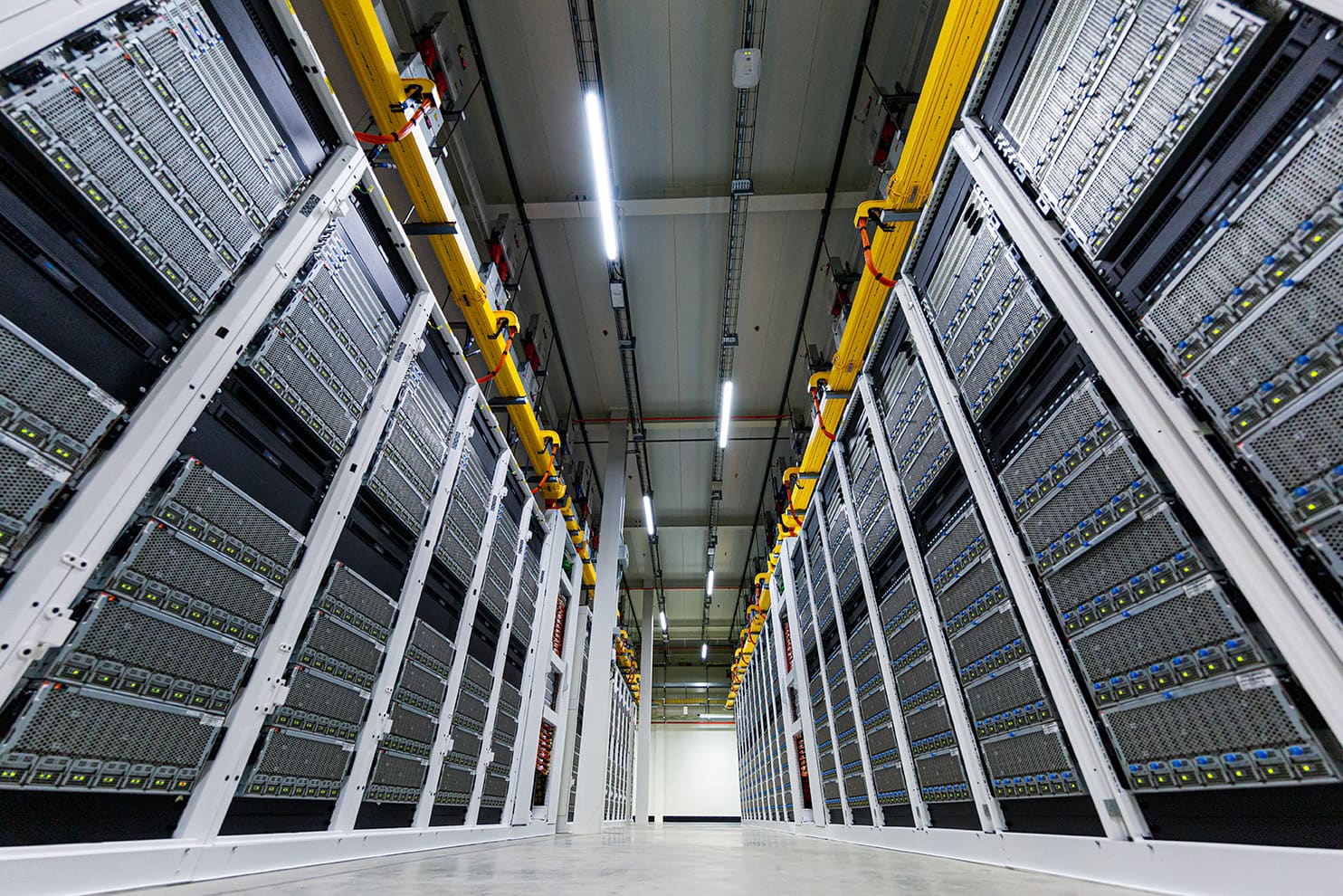Microsoft continues to expand its technological infrastructure in Europe with a strong investment in Poland. The company has established a new region of data centers in the country as part of its initiative to accelerate innovation and digitalization through the “Polish Digital Valley” project, which is part of an investment plan of $1 billion.
The data centers are the cornerstone of digital transformation, enabling everything from cloud storage to artificial intelligence services and cybersecurityCybersecurity solutions are essential in today’s era. With over 300 data centers in 34 countries, Microsoft strengthens its presence in Poland with a focus on economic development, job creation, and sustainability.
Economic Growth and Job Creation
The construction and operation of data centers in Poland represent a significant investment that directly impacts the local economy. Currently, Microsoft employs 39 people at its Polish facilities, but this figure is expected to increase to 64 full-time employees by the end of 2026.
The construction process for these infrastructures has required over 2.1 million work hours, generating more than 515 jobs at peak construction times. These positions include a wide range of professional profiles, from IT engineers to skilled workers in mechanics, electricity, and security.
Main Employment Sectors at Microsoft’s Data Centers in Poland:
| Work Area | Jobs Created |
|---|---|
| Data Center OperationsA data center is a facility used to house computer systems and associated components | Campus management, maintenance, mechanical and electrical engineering, security, IT |
| Construction | Electricians, plumbers, carpenters, concrete workers, heavy machinery operators |
In addition to direct employment, Microsoft also contributes to the development of the tech sector through training programs and digital skills development, benefiting both students and professionals seeking to specialize in the industry.
Commitment to Sustainability
Microsoft has set ambitious sustainability goals for its data centers in Poland, aligned with its global commitments to be carbon negative by 2030 and eliminate its historical carbon footprint before 2050.
Sustainable Initiatives at Data Centers in Poland:
| Category | Implemented Measure |
|---|---|
| Carbon Reduction | 100% renewable energy use by 2025 and transition to biofuels in backup generators. |
| Water Management | Implementation of evaporative cooling systems (DEC) that use water only 5% of the year, reducing consumption of this resource. |
| Waste Management | Reuse or recycling of over 90% of unused assets, including research to recycle air filters and fiber optic cables. |
The Microsoft data center in Poland has received LEED Gold certification, an international standard that recognizes the sustainable design of buildings, highlighting its energy efficiency and low environmental impact.
Tax Impact and Local Development
Data centers represent a capital-intensive investment and a source of tax revenue for local and national governments. Microsoft contributes to the Polish economy through property taxes, indirect taxes, and income taxes generated during both the construction and operation of its facilities.
| Type of Tax | Description |
|---|---|
| Property Tax | Generated annually after land acquisition and construction of infrastructures. |
| Indirect Taxes | Arising from materials, services, and operations. |
| Income Tax | Employee contributions in construction and operation phases. |
The impact of these investments is reflected in the strengthening of municipal services, education, and infrastructure development in the regions where Microsoft operates.
Digital Transformation and Growth of the Tech Ecosystem
Microsoft is not only building infrastructures in Poland but is also driving the country’s technological development. Through its partnership with Chmura Krajowa, Microsoft facilitates the adoption of cloud solutions for businesses and public administrations, enabling Polish organizations to accelerate their digital transformation with artificial intelligence, big data, and cybersecurity services.
The creation of these data centers strengthens Poland’s position as an emerging tech hub in Europe, facilitating access to secure, high-availability cloud infrastructure for startups, large companies, and government entities.
Conclusion
With the expansion of its data centers in Poland, Microsoft reaffirms its commitment to digitalization, sustainability, and the economic development of the country. The investment in technological infrastructure not only strengthens Poland’s competitiveness in the global digital landscape but also creates jobs, promotes digital skills training, and contributes to reducing environmental impact.
As the demand for cloud services and artificial intelligence technology continues to grow, Microsoft’s presence in Poland represents a strategic long-term investment for the region’s technological and sustainable development.
Source: Microsoft

